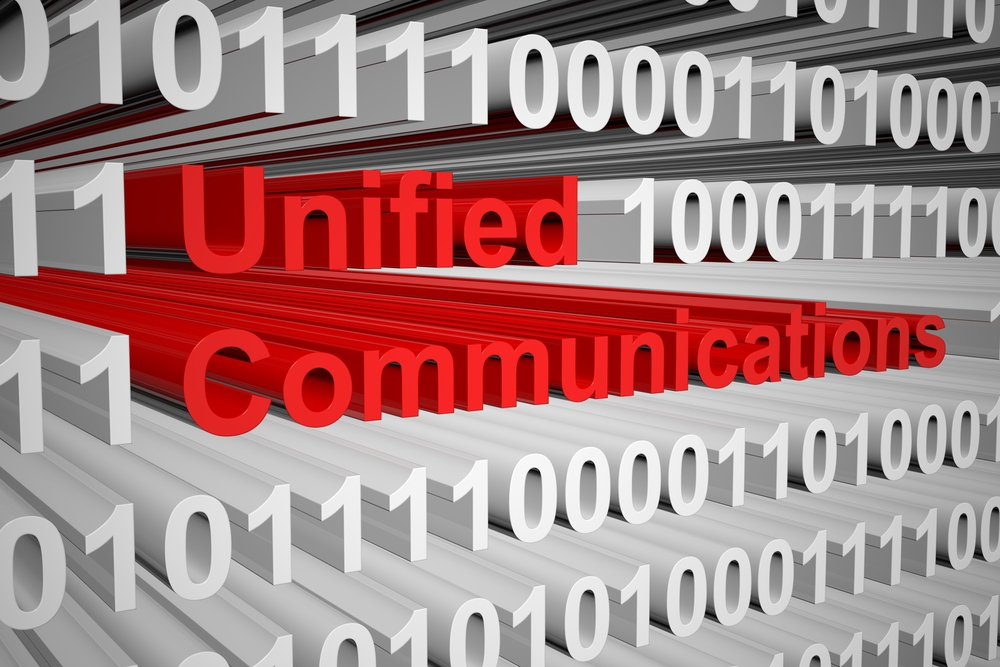 In order to stay competitive in today’s fast-paced and technology-based world, businesses need to be efficient and productive. One way to achieve this is through unified communications, so that all tools and platforms are connected — which can save businesses hundreds of thousands a year.
In order to stay competitive in today’s fast-paced and technology-based world, businesses need to be efficient and productive. One way to achieve this is through unified communications, so that all tools and platforms are connected — which can save businesses hundreds of thousands a year.
There are two ways to unify communications: outsourcing to a vendor (UCaaS) or through an on-premise solution. Businesses looking to purchase UCaaS from a vendor should be aware of the risks of using different vendors for UCaaS and internet versus a single vendor for both.
Business Continuity
Losing data, whether through cyber criminals, a natural disaster, or an employee misplacing a device, can cripple a business. A regular internet provider doesn’t always offer backups or geographic redundancy, whereas a single dedicated vendor with a commitment to business continuity will. This also means that data can be restored within minutes, allowing the business to continue with barely a hiccup.
Customer Service
Regular internet providers may not have dedicated customer service reps for important tools like phones and internet connections, especially outside of regular business hours. A single vendor will be more likely to have live and knowledgeable customer service available no matter the time or day, ensuring efficient, quality help in the event of a problem.
Hardware
Mismatched hardware can cause issues both in setup and later down the road when troubleshooting problems. If choosing a multi-vendor network, the business will need to do the research to ensure that UCaaS transmissions are properly prioritized.
Outages
Internet uptime mostly relies on the type of connection a business has. Fiber optic cable is more reliable than copper, which can fail due to:
- Equipment failures
- Moisture
- Severe weather
- Temperature fluctuations
Vendors that provide both unified communications and internet connectivity are more likely to offer fiber optic cable lines, which will ensure that the business has access to the cloud — where data is stored — as well as phone lines and other tools of communication.
Quality
The biggest drawback of using a regular internet provider is that all business traffic will be competing with traffic from other customers, both large and small. During peak times, this can result in slow transmissions, delays, and sound quality issues on phone calls. Using a single dedicated vendor ensures business data is prioritized and resources are not being hogged in one direction or the other.
Security
Security is paramount in protecting sensitive data, but transmitting over a regular provider’s network can mean that cyber criminals have easier access — and copper cable is less secure than fiber. A single-vendor UCaaS solution means more focus on security as well as access to the information and reports that make risk analysis easier.
Troubleshooting
All technology requires troubleshooting occasionally. Having internet and UCaaS from separate vendors means first figuring out which one is having the issue, and then trying to find what the issue is and where it’s coming from. A single vendor means easier, faster troubleshooting so that any issue is solved as soon as possible.
Businesses with the capital to purchase unified communications and internet from a single vendor will benefit from improved efficiency and productivity while saving money. Data will be more secure, troubleshooting will be simpler, and businesses will have higher quality customer service and prioritized transmissions to ensure their communications are quick and steady.
 Technology has become so ubiquitous that customers are constantly looking for the fastest, most convenient way to get what they want. Fortunately, the continuing switch from analog to digital has made it easier than ever for businesses to purchase unified communications solutions, from Voice over Internet Protocol (VoIP) to video conferencing and file sharing. For businesses looking to keep ahead of the competition without sacrificing efficiency, convergence of services is key.
Technology has become so ubiquitous that customers are constantly looking for the fastest, most convenient way to get what they want. Fortunately, the continuing switch from analog to digital has made it easier than ever for businesses to purchase unified communications solutions, from Voice over Internet Protocol (VoIP) to video conferencing and file sharing. For businesses looking to keep ahead of the competition without sacrificing efficiency, convergence of services is key. Many businesses are beginning to come around to the idea of a contact center that allows them to prove that their clients are important. Part of this comes from the rise of the cloud, which allows even small businesses to access a number of features that were previously too expensive. By using a cloud-based contact center solution, businesses are able to:
Many businesses are beginning to come around to the idea of a contact center that allows them to prove that their clients are important. Part of this comes from the rise of the cloud, which allows even small businesses to access a number of features that were previously too expensive. By using a cloud-based contact center solution, businesses are able to: When deploying a hosted unified communications (UC) system, proper employee training is paramount to a successful adoption that keeps employees happy and enables them to continue their jobs with ease. Although it may seem as simple as switching from one type of phone system to another, for many employees UC is completely different from traditional telephony. In order to get the best ROI possible, businesses should use as many of the following training methods as needed:
When deploying a hosted unified communications (UC) system, proper employee training is paramount to a successful adoption that keeps employees happy and enables them to continue their jobs with ease. Although it may seem as simple as switching from one type of phone system to another, for many employees UC is completely different from traditional telephony. In order to get the best ROI possible, businesses should use as many of the following training methods as needed: A business runs on its employees, and meeting their needs with unified communications (UC) will result in better productivity and efficiency throughout the workplace. As UC continues to evolve, businesses will need to look at a complete solution that covers all aspects of workplace collaboration, rather than just one feature. Here are four UC trends that have emerged in 2016.
A business runs on its employees, and meeting their needs with unified communications (UC) will result in better productivity and efficiency throughout the workplace. As UC continues to evolve, businesses will need to look at a complete solution that covers all aspects of workplace collaboration, rather than just one feature. Here are four UC trends that have emerged in 2016.